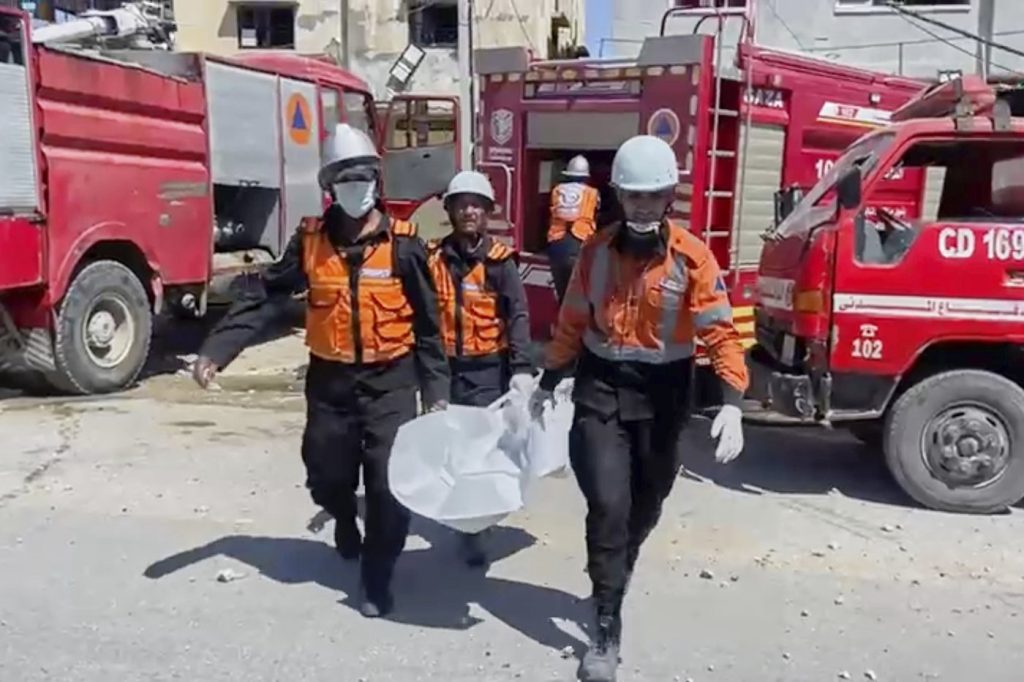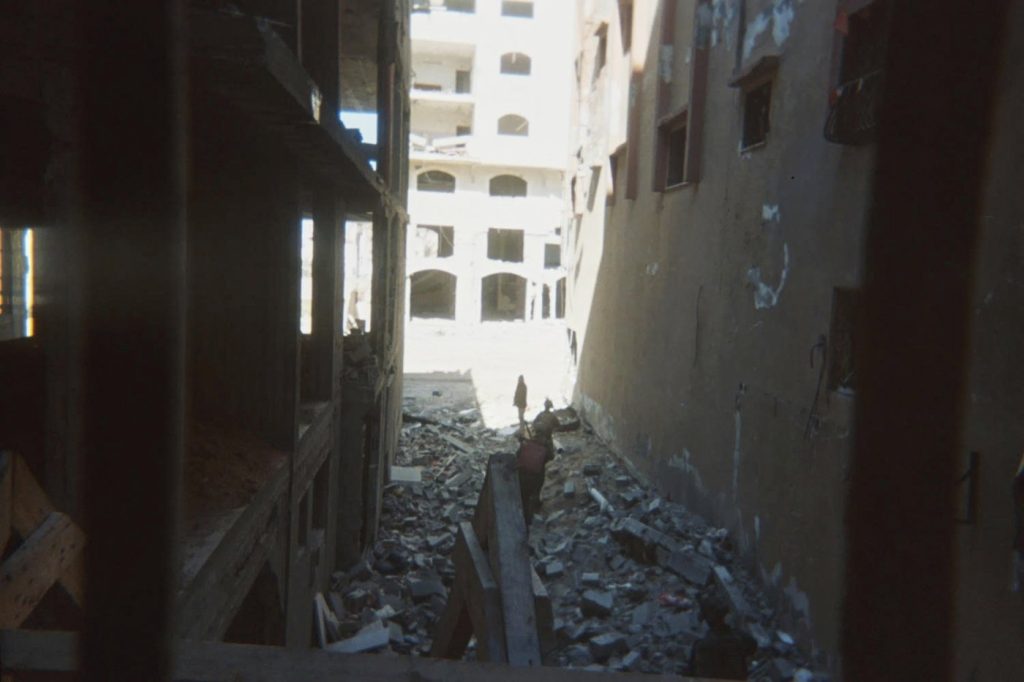CAIRO (AP) — The Gaza Health Ministry reported that the bodies of 79 individuals killed by Israeli airstrikes have been delivered to hospitals within the last 24 hours. This grim toll does not account for casualties in northern hospitals, which have become inaccessible due to ongoing warfare. Tragically, among the deceased were nine out of a doctor’s ten children, highlighting the personal toll of the conflict. Alaa Najjar, a pediatrician working at Nasser Hospital, rushed home during her shift, only to find her family’s house engulfed in flames. Najjar's husband sustained severe injuries, and their only surviving child, an 11-year-old son, remains in critical condition following an airstrike on Khan Younis.
The deceased children ranged in age from just 7 months to 12 years. Khalil Al-Dokran, a spokesperson for Gaza's Health Ministry, disclosed that two children were still trapped under the rubble after the strikes. The Israeli military claimed it targeted individuals operating from a location adjacent to its forces, labeling Khan Younis as a “dangerous war zone.” They asserted that civilians were evacuated from the area and are currently reviewing claims regarding harm to uninvolved civilians.
On the same day, the Israeli air force reported the bombing of over 100 locations throughout Gaza. The Health Ministry’s updated figures brought the cumulative death toll from the ongoing conflict to 53,901 since the onset of the war following the October 7, 2023, attack led by Hamas. The Ministry states that 3,747 of those deaths occurred in Gaza since Israel resumed military operations on March 18, in a bid to pressure Hamas into accepting modified ceasefire terms. Their casualty count does not differentiate between civilians and combatants.
The blockade imposed by Israel on Gaza and its population of over 2 million has intensified since early March. Recently, it was reported that aid trucks began entering Gaza, marking the first aid deliveries since the commencement of the blockade. COGAT, the Israeli defense body managing aid operations for Gaza, indicated that 388 trucks had entered since Monday, a stark contrast to the approximately 600 trucks per day that had crossed during the preceding ceasefire.
Warnings of impending famine have raised concerns among food security experts. Distressing images of Palestinians scrambling for limited food resources at diminishing charity kitchens have prompted Israel’s allies to urge Prime Minister Benjamin Netanyahu’s government to permit a return of some humanitarian aid. Although Netanyahu’s administration has aimed to create a new aid delivery system overseen by a U.S.-backed coalition, this proposal has been dismissed by the United Nations and other humanitarian organizations, which argue it might weaponize food and contravene humanitarian principles.
Hospitals in Gaza have continued to face assaults and pressures linked to Israeli military actions. The Health Ministry reported that 11 security staff members became trapped inside the European Hospital following heavy gunfire and airstrikes since at least Tuesday. Dr. Saleh Hams, the hospital's nursing department director, shared accounts of patient evacuations after an Israeli strike on May 13, explaining that security staff remained behind to safeguard the facility from potential looting. This hospital was noted as the only facility in Gaza offering specialized services such as neurosurgery, cardiac care, and cancer treatment.
Israel has made it clear that it intends to persist in its military actions until Hamas releases all 58 remaining Israeli hostages and disarms. Following the October 7 onslaught, it is believed that fewer than half of these hostages are alive. Hamas has responded by asserting that it will only return the remaining hostages in exchange for a significant number of Palestinian prisoners, a stable ceasefire, and a complete Israeli withdrawal from the territory. Netanyahu has categorically rejected these terms, reaffirming his commitment to maintaining control over Gaza and facilitating what he terms as voluntary emigration for much of the Palestinian populace.
At a weekly rally in Tel Aviv, Liran Berman, brother of hostages Gali and Ziv Berman, articulated the stark alternatives facing the Israeli government: "deal or war, saving lives or abandonment," as families and supporters continued to demand an agreement that would facilitate the safe return of all hostages.












